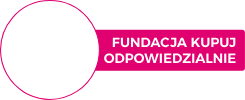Corn Flakes is a brand owned by Nestlé and dealing in the production of breakfast cereals. In 2021, 16.3% of Nestlé's key raw materials were produced in a more sustainable way, with 76.3% of the eggs coming from cage-free farms. The company has ensured that all palm oil used in its products will come from more sustainable sources by 2023, and all coffee and cocoa by 2025. Nestlé also plans to achieve and maintain the entire supply chain free of deforestation (by 2022 for products such as meat, palm oil, paper, soybeans and sugar, and by 2025 for coffee and cocoa). Another Nestlé goal is to source 20% of key ingredients through regenerative farming methods by 2025 and 50% by 2030. Corn Flakes has a bio line with the European certificate of organic farming. Corn Flakes products have a simple composition without food additives such as preservatives, dyes, emulsifiers or stabilizers. Corn Flakes products are sold in paper packaging certified for organic farming, the rest of the range is sold in plastic packaging. 39.5% of product packaging for all Nestlé brands is made from recycled and/or renewable materials. Nestlé operates worldwide, in the United States as well as in Europe, Africa and Asia. It has an ISO 9001 quality management system. It has the ambitious goal of achieving zero net greenhouse gas emissions by 2050. In Germany, the first pilot "climate dairy farm" has been established to support activities and efforts to achieve zero greenhouse gas emissions. Nestlé has declared that it will plant 20 million trees by 2030. The company conducts social and environmental projects regarding, among others, water management. In Pakistan, she has partnered with the government to support local farmers with more sustainable practices that focus on regenerative agriculture. The Nestlé Group directly supports and conducts training for its suppliers and farmers. In Ghana and Côte d'Ivoire, it pays cash incentives to farmers for enrolling their children in school or switching to more sustainable farming practices (such as agroforestry or crop diversification). In the last 8 years, she has trained 15,000 women in East Africa. By 2025, it plans to train 25,000 young people in Honduras in good coffee production practices. Part of the income from the sale of Corn Flakes with a certificate of organic farming is allocated to the construction of beehives.
 DOBRE ZAKUPY
DOBRE ZAKUPY DOBRE ZAKUPY
DOBRE ZAKUPY

